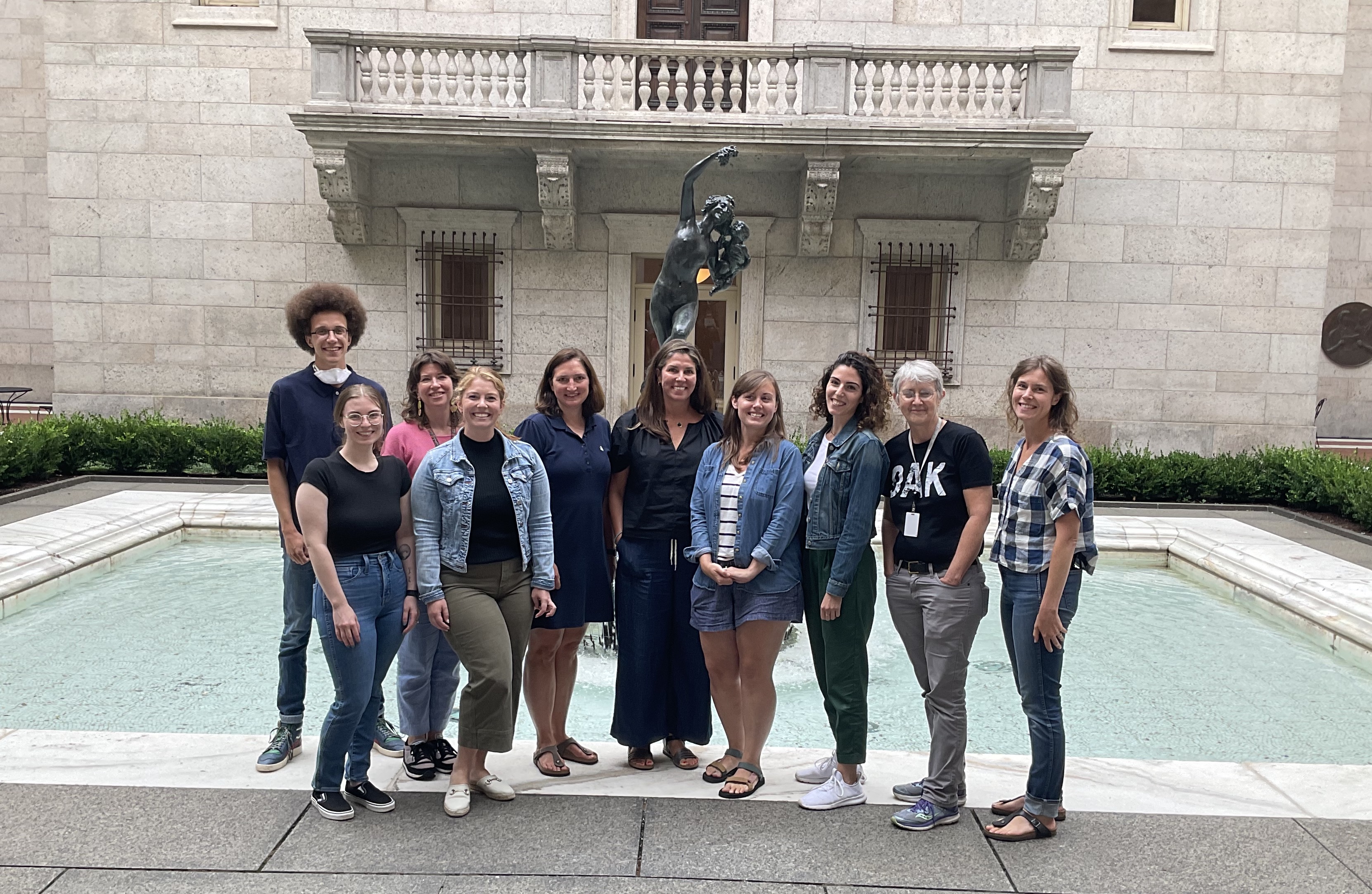The summer is a particularly fun time to be working in the Map Center. Not only do visitors from around the world visit the Boston Public Library but we also get the chance to work closely with some of our favorite people: K-12 educators!
There are currently three great professional development programs we are offering for K-12 educators, from a 3-day workshop tied to our current exhibition Building Blocks: Boston Stories from Urban Atlases, to two paid opportunities for teachers to dig into our map collections and create original curriculum for their classrooms.
2023 Carolyn A. Lynch Teacher Fellowship

Teacher fellows from 2022.
Do you teach Boston history and contemporary issues? Are you interested in incorporating maps in new ways into your classroom? Then we encourage you to apply to be a fellow this summer! We welcome all kinds of ideas for creating curriculum, but we’re especially interested in educators who might want to explore the history and present of Black Boston and how maps do (and don’t) reflect communities. Fellows are paid a $1000 stipend upon completion of their project.
Please see here to learn more and apply.
Lifting as We Climb: Black Women’s Activism in Turn of the 20th Century Boston

Our Building Blocks exhibition follows the biography of Florida Ruffin Ridley, an important Black Bostonian who worked, studied, played, and created within the landscapes on display.
This three-day workshop, designed in conjunction with our current exhibition, Building Blocks: Boston Stories from Urban Atlases, will expand your knowledge and comfort in teaching the role and impact of women in Boston’s Black history. Presenters include artist and Educator L’Merchie Frazier and Scholar and Author Lois Brown. Teachers receive 22.5 PDPs or one graduate credit (for an additional fee to Westfield State).
Please see here to learn more and register.
Lesson Plan Creation for American Revolutionary Geographies Online

The ARGO portal collates digitized maps of North America made between 1750 and 1800 into a user-friendly portal, like this map from 1775.
The George Washington Presidential Library at Mount Vernon and the Leventhal Map & Education Center are looking for 3-5 teachers this summer to create mini-lessons focused on maps from the newly launched American Revolutionary Geographies Online (ARGO). Teachers will be paid $500 upon completion of two mini-sessions and lesson plan work.
Please see here for more information.
Our articles are always free
You’ll never hit a paywall or be asked to subscribe to read our free articles. No matter who you are, our articles are free to read—in class, at home, on the train, or wherever you like. In fact, you can even reuse them under a Creative Commons CC BY-ND 2.0 license.